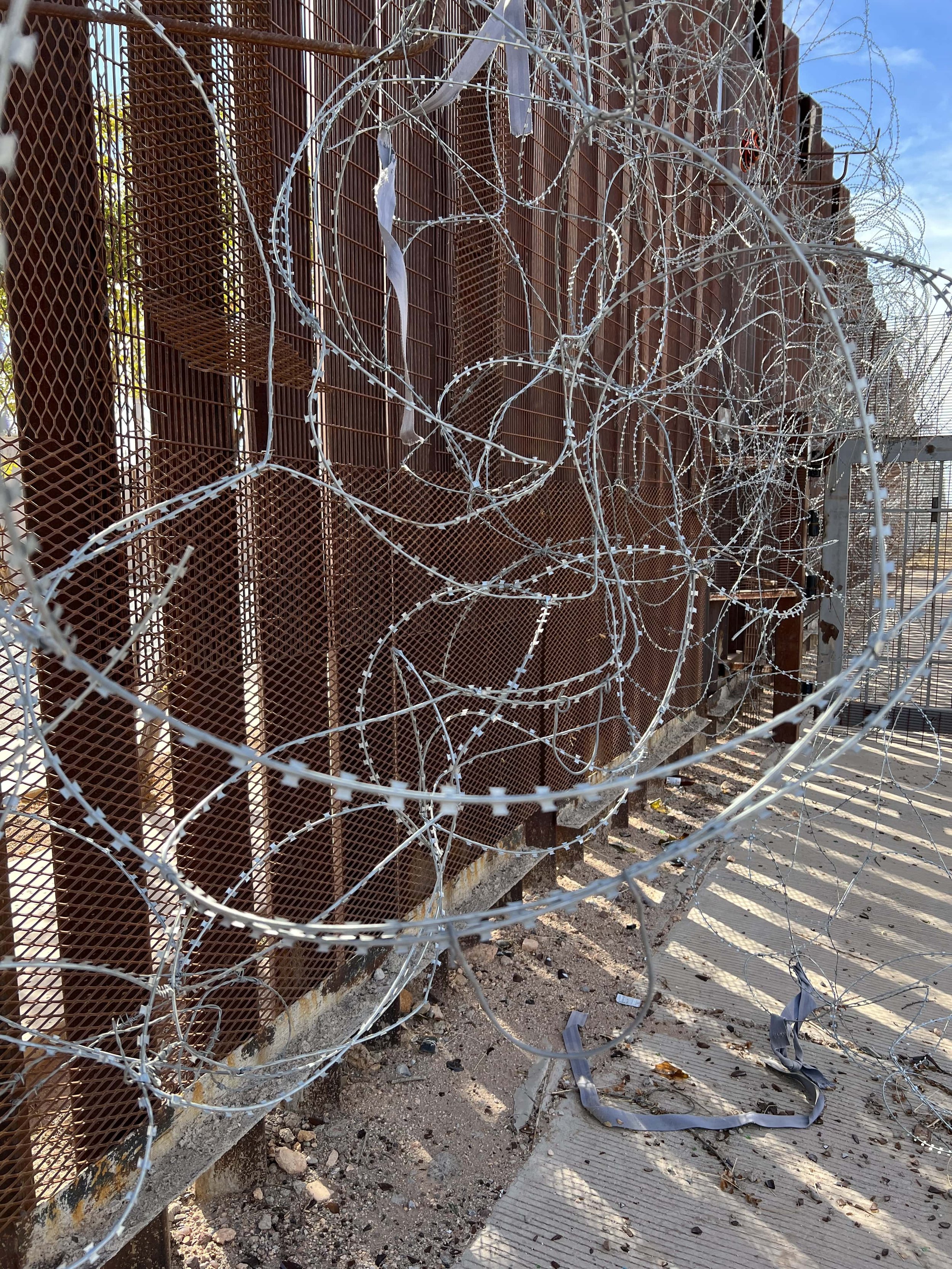Message from Transitional Synod Leader: Walking the Path of Justice: Reflections on Courage, Compassion, and the Church's Call
I could never fully imagine the courage it must have taken to walk from Virginia to Delaware, onward to Pennsylvania, New York, and ultimately, for some, to Canada. Yet, this was the path many enslaved individuals followed as they were guided by Harriet Tubman—"Moses"—who defied national laws to pursue justice and freedom. Last week, I embarked on a journey with other Synod leaders that led us along a different but similarly profound path: the migrant route from Agua Prieta, Mexico, to Douglas, Arizona.
The terrain was unrelenting—a harsh desert filled with thorny bushes, treacherous ditches, cow patties, and an ever-present sense of danger. Our guides reminded us that we were under watch, not only by border patrol but also by organized crime. Advances in technology meant that even from afar, those watching could identify our group's movements, even down to the color of our eyes.
As we reflected, we listened to displaced families and mission co-workers who have dedicated more than two decades to border ministry. Their stories were heart-wrenching yet filled with resilience and hope, underscoring the complexities of immigration and the harsh realities faced by those seeking a better life.
What struck me most during this experience were the questions that arose in my heart and mind. What life were these migrants told they would find in the United States? Which policies and political forces have shaped the border's current conditions? And most importantly, what can be done on both sides of the border to make life more humane, just, and sustainable?
Poverty, injustice, and crime cross all boundaries—geographical, political, and ideological—serve as a stark reminder of our interconnected humanity. These are deeply complex issues intertwined with economic systems, historical inequalities, and social dynamics, and reducing them to partisan blame or simplistic solutions does a disservice to the truth and the people affected. To address these issues effectively requires humility, nuanced understanding, and collaboration across differences.
As I walked along the migrant path, each step brought a new question: How would Christ respond to those in need today? Would He stand at the border offering compassion and refuge or challenge the systems that create such desperation? How do we, as His followers, embody that response? What does it mean to do the right thing in 2024? And next year, in 2025, a year that will demand clarity, courage, and a steadfast commitment to justice?
2025 will undoubtedly bring its whirlwind of changes and challenges as societal, economic, and political shifts unfold. In the face of such uncertainty, how can we prepare to not only react but also lead with love, advocate for justice, and pursue reconciliation in a world that often feels increasingly divided? These questions are not abstract—they are calls to action for all who seek to live out their faith in meaningful, transformative ways.
My reflections turned to the words of St. Augustine of Hippo, who proclaimed, "An unjust law is no law at all." Writing in the fourth century, Augustine wrestled with the existence of evil and the moral responsibility to oppose it. Centuries later, Thomas Aquinas expanded on this idea, arguing that laws must meet three criteria to be just:
They must serve the common good.
They must be within the authority of the lawmaker.
They must apply equally to all.
For Aquinas, laws contradicting natural or divine law—those that degraded rather than uplifted human dignity—were inherently unjust.
Dr. Martin Luther King Jr., in his Letter from Birmingham Jail, echoed these sentiments:
"One has not only a legal but a moral responsibility to obey just laws. Conversely, one has a moral responsibility to disobey unjust laws... Any law that uplifts human personality is just. Any law that degrades human personality is unjust."
These words resonate deeply with the Church's call to engage with our time's moral and political challenges. What is our role in addressing the world's brokenness? What can we, as followers of Christ, do to bring about justice, compassion, and hope?
As you reflect on these questions, I invite you to listen to the Spirit's urging. You may not be called to be a 21st-century Harriet Tubman, Augustine, Aquinas, or Dr. King. But there is something you can do. What will your mark on the world be? What small step can you take today toward creating positive change?
Let us pray together the timeless words of St. Francis of Assisi:
Lord, make me an instrument of your peace.
Where there is hatred, let me sow love;
where there is injury, pardon;
where there is doubt, faith;
where there is despair, hope;
where there is darkness, light;
and where there is sadness, joy.
O Divine Master, grant that I may not so much seek
to be consoled as to console;
to be understood as to understand;
to be loved as to love.
For it is in giving that we receive;
it is in pardoning that we are pardoned;
and it is in dying that we are born to eternal life. Amen.
Rev. Ashley



